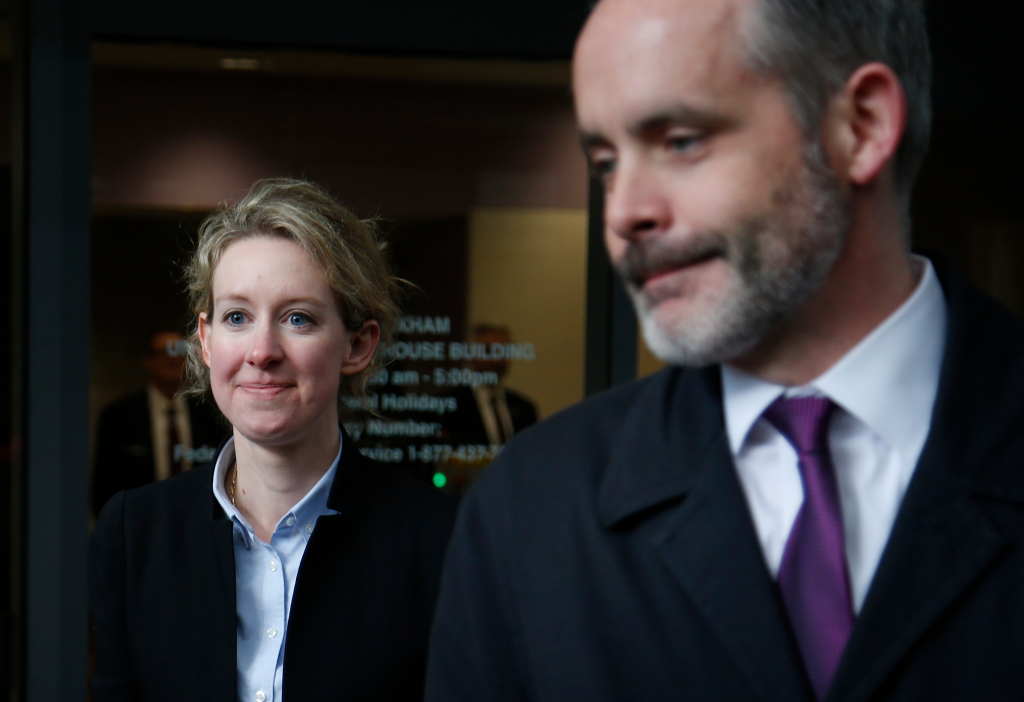The federal court judge overseeing proceedings against Theranos founder Elizabeth Holmes set deadlines Tuesday for prosecutors and her lawyers to submit arguments, after she claimed pandemic-related changes to grand jury selection may have violated her rights.
Holmes last week filed a motion in U.S. District Court in San Jose, seeking access to the selection records for the grand jury that returned the latest 11-count felony fraud indictment against her and Sunny Balwani, the former president of the defunct Palo Alto blood-testing startup. The motion suggested that changes to the selection process, intended to keep jurors safe amid the coronavirus pandemic, may have meant the indictment — which removed a charge added after her original indictment — was not issued by the cross-section of the public required by law.
In citing “the disproportionate medical and economic impact that the Covid-19 crisis has had on certain populations,” the motion echoed concerns Holmes’ legal team have raised about the composition of the trial jury that will hear her case amid a pandemic. Holmes’ lawyers said in a court filing that she plans to challenge the selection process for the grand jury whose indictment was filed July 14.
Judge Edward Davila on Tuesday gave federal prosecutors a July 31 deadline to respond to the motion, and set Aug. 7 as the deadline for Holmes’ lawyers to file any comment on the government’s response.
Holmes, a Stanford University dropout who founded Theranos in 2003, is charged with allegedly bilking investors out of hundreds of millions of dollars, and defrauding doctors and patients, with false claims that the company’s machines could conduct a full range of tests using just a few drops of blood.
Last month, the federal court system’s Covid-19 Judicial Task Force issued a report advising courts to expect more prospective jurors than in pre-pandemic times to ask to be excused from serving because of health concerns. Healthy people not especially vulnerable to Covid-19 might hesitate to serve for family or work reasons related to the pandemic, the task force warned. Courts were advised to consider bringing in fewer grand jurors than the usual 23 “in order to make a quorum of 16.”
Holmes, in her motion to access selection records, noted that grand jury proceedings in the Northern District of California were suspended from April 30 until a date in June not made public. “Once resumed, grand jury proceedings were conducted in an undisclosed manner,” the motion said. “The jury-selection procedures apparently were revised from past procedures in light of the ongoing pandemic, and it is unclear what effect these changes had on the constitution of the grand jury.”
She is seeking information including documents or court rulings reflecting coronavirus-related changes to grand jury creation, along with any analyses produced to ensure the selection process was constitutional, plus the number of grand jurors who indicted her, and jurors’ attendance records.
Holmes’ trial has been delayed by the coronavirus pandemic, with Davila last week declining to set a new date but indicating it might start in February.










